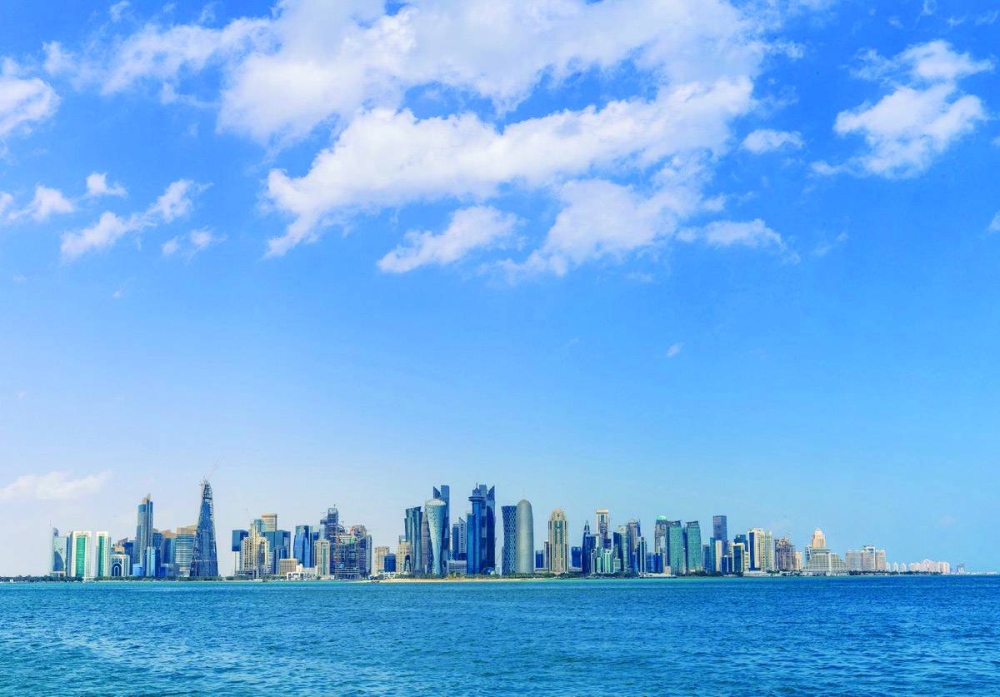Qatar's medium-term growth is expected to average around 5.5%, boosted by significant LNG (liquefied natural gas) production expansion (65% by 2028) and the initial reform gains from implementing the third National Development Strategy (NDS3), according to the International Monetary Fund (IMF).
As global commodity prices decline and domestic demand normalises, headline inflation is to moderate to around 2% over the medium terms against the projected below 3% in 2023, said the IMF after concluding its Article IV consultation with Qatar.
Highlighting that the fiscal and current accounts will likely remain in "sizeable" surplus, the Bretton Wood's institution said hydrocarbon prices are likely to stay elevated, albeit declining over the medium term.
"Qatar’s LNG production expansion, combined with increasing demand from Asia and Europe, is set to boost LNG export over the medium term," it said.
Amid high hydrocarbon prices, both fiscal and current account positions strengthened significantly in 2022, with surpluses reaching 10.5% of GDP (gross domestic product) and 26.5% of GDP, respectively.
Finding that risks are broadly "balanced"; it said maintaining prudent macroeconomic policy and intensifying reform efforts will support Qatar’s resilience to shocks and accelerate its economic transformation.
The IMF suggested that the fiscal strategy should balance discipline with growth in the near term and facilitate the transition to more diversified, private sector-led growth over the medium term.
If downside risks to growth materialise and the ongoing growth slowdown sharpens, some fiscal space could be deployed through productive and efficient spending, while maintaining broad fiscal prudence, according to the IMF.
"In the medium term, fiscal strategy should aim at sustaining prudent and countercyclical policy, accelerating revenue diversification including via VAT (value added tax) introduction, enhancing current expenditure efficiency by rationalising wage bill and gradually removing remaining subsidies, and reorienting expenditure from traditional infrastructure to reforms that facilitate transformation to a private sector-led growth model," it said.
A medium-term fiscal framework anchored around maintaining intergenerational equity, complemented by greater fiscal transparency, would support the implementation of the fiscal strategy, it added.
Qatar’s medium-term fiscal strategy should be underpinned by sustained prudence, accelerated revenue diversification and enhanced spending composition and efficiency, it said, forecasting that the central government debt is projected to gradually decline to close to 30% of GDP by 2028.
On the need to intensify reform efforts to shift from a traditional state-led growth model to a more dynamic, knowledge-based, private sector-driven one; the IMF said attracting more skilled expatriates, improving education outcome, incentivising Qatari nationals to take up private sector jobs, and raising female labour force participation will enhance human capital and labour market dynamics.
Highlighting the need to promote further trade liberalisation, ease access to finance, and continue enhancing administrative efficiency; it said these measures should be implemented comprehensively in a well-sequenced manner to boost potential growth.
Furthering digitalisation and climate actions are also critical, it said, adding broadening gains from economic zones and centers to the wider economy would accelerate economic diversification.
Qatar’s decade-long efforts to diversify the economy culminated into the successful hosting of the 2022 FIFA World Cup. After very strong performance in 2022 on the back of World Cup-induced buoyancy and high hydrocarbon prices, growth has been normalising, with real GDP growth in 2023 projected at 1.6%.
"Growth normalisation is expected to continue in the near term, with non-hydrocarbon growth supported by investment in public projects, construction of the North Field LNG expansion project, and their spillovers to logistics, manufacturing, and trade," IMF said.
Qatar
Qatar's medium-term growth to average 5.5%: IMF
Qatar’s LNG production expansion, combined with increasing demand from Asia and Europe, is set to boost LNG export over the medium term


